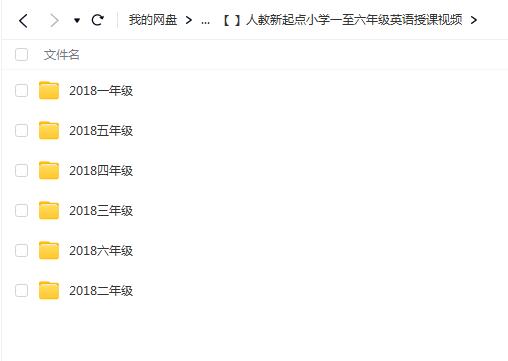1. 一般情况下,直接在动词词尾加 ed. 如:tal—taled说 listen—listened 听play—played玩 climb—climbed 爬2. 以不发音的 e 结尾,在动词词尾加 d. 如:practise—practised练习3. 以辅音字母加 y 结尾的动词,变 y 为 i 再加 ed. 如:study—studied学习 ,研究4. 以一个辅音字母结尾的重读闭音节词,双写最后一个辅音字母,再加 ed. 如:stop—stopped 停止5. 不规则动词没有规律,需要特殊记。如:do-did have—had go—went learn—learnt tae—too read—teach— taught stand—stood sit—sat say—said run—ranis, am—was are—were write--wrotelearn words and sentences 学习单词和句子时态:一般过去时,表示过去某个时间里发生的动作或存在的状态。主要有动词的过去式体现,其标志词是过去的时间。如:yesterday昨天 last night 昨晚 last wee上周 last year 去年 等等。1. What did you do during the holidays? 假期间你做了什么?--I read many boos./ I learnt writing. / I wrote a little storyboo in English./ I visited my grandparents.before 在..之前 always 总是,经常often 时常 sometimes 有时never 从不 一般现在时:表示经常,反复发生的动作或存在的状态。常与 always/often/sometimes/never/everday 等时一般人称做主语,谓语动词用原型。当主语是第三人称单数时,谓语动词要加 s或 es. 第三人称单数主语1. atie always gets up early.2. She often does her homewor before dinner.3. She sometimes plays chess with her father after dinner.search for a lot of things 查找许多东西find out about countries 查找国家I lie my computer.我喜欢我的电脑。It is very fast.它很快。What can we do on the computer?我们能在电脑上做什么?---We can email each other. 我们可以互相发送问候。----We can search for a lot of things.我们可以查找许多东西。----We can send greetings to our friends. 我们可以发送问候给朋友。the Mid-Autumn Festival 中秋节 nearby附近的 type 类型 taste尝 nuts 坚果go shopping 去购物 shopping centre 购物中心 have a loo看看 louts seed莲子 red bean红豆1. Which type do you lie? 你喜欢哪种类型? --I lie the ones with lotus seeds.我喜欢莲子馅的。2. How much is a bo of mooncaes? 一盒月饼多少钱?3. This mooncae tastes good. 这个月饼尝起很好吃。4. I enjoy eating mooncaes. 我喜欢吃月饼。 I enjoy looing at the moon.我喜欢赏月。light rain 小雨 heavy rain大雨时态:一般将时,表示将某个时间将要发生的动作或存在的状态。其标志词是将的时间。如:tomorrow 明天 the day after tomorrow 后天 net wee下周 net month 下个月 net year明年肯定句:主语 +will+ 动词原形 +其他 It will be clear in Shanghai.上海将是晴朗的。否定句:主语 +will not(won ’ t)+动词原形 +其他 It won ’ t rain tomorrow. 明天将不会下雨。It will be sunny and cool tomorrow. 明天将是晴朗而又凉爽的。There will be a light snow net Friday.下星期五将有小雪。如:a bottle of 一瓶 a bo of 一盒 a few cans of几罐a few bars of 几条 a piece of一张 a bowl of 一碗 a cup of 一杯1.如果后接可数名词,要用可数名词的复数形式。如:a bo of caes. 一盒蛋糕 a bo of candies一盒糖果2.如果后接不可数名词,就用原形。如:a bottle of orange juice 一瓶橙汁。3.如果物品数量超过一,无论后接可数名词还是不可数名词,单位词都应该用复数形式。如:tow cans of Coe 两罐可乐 Three boes of peanuts三盒花生a few bars of chocolate 几条巧克力1. What are we going to bring for the picnic?我们打算带什么去野餐呢?---I will bring a few bars of chocolate.我将带几条巧克力。---I will bring a big bottle of orange juice. 我将带一大瓶橙汁。2. I can’ t wait for tomorrow to come. 我等不到明天的到。3. Let’s meet at the par at 900 a.m. 让我们上午九点在公园见。help old people on the road 帮助老人过马路clean their homes 打扫他们的房间help them to get on or off the bus 帮助他们上下车help them to carry things 帮助他们拿东西I can mae tea or coffee for them.我能给他们泡茶或咖啡。I can help them on the road. They are wea and slow. 我能帮助他们过马路。他们很虚弱而且很缓慢。I can sing to them and mae them happy. 我能唱歌给他们听并且让他们快乐。keep the rivers clean 保持河流干净keep the air clean and fresh 保持空气清新should 应该 should not=shouldn't 不应该should't ill wild animals 不应该杀野生动物should't waste water 不应该浪费水1. We should plant more trees.我们应该多种树。2.We should eep the air clean and fresh. 我们应该保持空气清新。3.We shouldn’t waste water.我们不应该浪费水。4.We shouldn’t litter.我们不应该乱扔垃圾。5.There isn’t enough water on the earth.地球上没有足够的水。6.We must save every drop of water. 我们必须节约每一滴水。★语法点:掌握形容词比较级和最高级的变化规则及用法。1.一般情况,形容词的比较级直接在词尾加 er,最高级加 est. 如:small-smaller-smallest2.形容词后面以不发音的 e结尾,比较级直接加 r,最高级加 st. 如:nice-nicer-nicest3.形容词后面是以辅音字母 +y 结尾的,变比较级要把 y 改为 i,再加 er. 如:heavy-heavier-heaviest4.形容词后面是以一个元音字母 + 一个辅音字母结尾的。要双写最后的辅音字母再加 er或 est.5.特殊情况,特殊记。如:good-better-best| 原级 | 比较级 | 最高级 |
| big | bigger | biggest |
| small | smaller | smallest |
| short | shorter | shortest |
| fast | faster | fastest |
| tall | taller | tallest |
| long | longer | longest |
| loud | louder | loudest |
1. 比较级:两者进行比较,句中用“ than” (比)句子结构:A+is+ 形容词比较级 +than+B 表示 A 比 B 更⋯如:Tom is taller than Mie.汤姆比麦克更高。2 最高级:三者以上进行比较。句子结构:A+is+the+ 形容词最高级 表示 A 是最⋯如:This bird is the biggest.这只鸟是最大的。1.Welcome to our clay art show.欢迎到我们的黏土艺术展。2.Please tae a loo. 请看一看。3.This bird is bigger than the first one.这只鸟比第一只更大。4.Tom’s hair is shorter than Mie’s.汤姆的头发比麦克的更短。(两者比较的物品相同,前者已经提到,后面就可以省略不提)5.Bob’s singing is the best. Bob的歌声是最好的。What’s wrong with you?=What’s the matter with you?你有什么问题吗?/ 你怎么啦?(常用于对身体状况进行询问)--I don’t feel well.我感觉不舒服。/ I have a cough.我咳嗽。/ I have a headache. 我头疼。1.掌握英语打电话的句型:AHello! Is that Anne? BYes. This is Anne.2.Shall用于将时,表示将要发生的事。用于疑问句中,表示征求对方的意见。如:① Shall we go to the theatre?我们去剧院好吗?②Shall we go to the cinema? 我们去电影院好吗?3.同时表示征求对方意见的句子还有 Let 引导的句型。如:Let’s see a play. 让我们去看戏剧吧1. Merry Christmas! 圣诞快乐!2. Christmas falls on 25th December. 12月 25日是圣诞节。3. Here’ s a present/ a Christmas card for you. 这是给你的礼物。/ 圣诞卡片
电子课本|小学英语三年级上册(湘少版)
2021-07-22

电子课本|小学英语四年级上册(湘少版)
2021-07-22

电子课本|小学英语五年级上册(湘少版)
2021-07-22

电子课本|小学英语六年级上册(湘少版)
2021-07-22

电子课本|小学英语三年级下册(湘少版)
2021-07-22

电子课本|小学英语四年级下册(湘少版)
2021-07-22

电子课本|小学英语五年级下册(湘少版)
2021-07-22

电子课本|小学英语六年级下册(湘少版)
2021-07-22

▍免责声明:本图文素材仅供免费学习交流之用,版权归原作者所有,若有侵权,请联系我们删除!





































相关资源